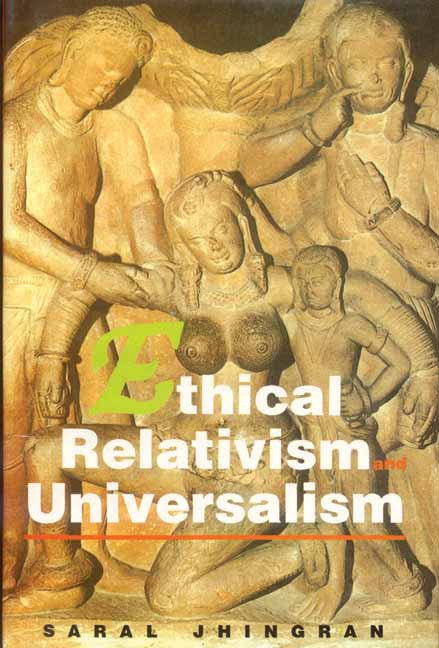Ethical Relativism and Universalism
![]() 100% Genuine New Books
100% Genuine New Books
![]() Fast Shipping with Tracking Number
Fast Shipping with Tracking Number
Secure Payments via UPI, Cards & Wallets
![]() Trusted Support & Easy Returns
Trusted Support & Easy Returns
Ethical Relativism and Universalism - Hardcover is backordered and will ship as soon as it is back in stock.
ISBN : 9788120818200, 8120818202
Year of Publication : 2001
Edition : 1st
No. of Pages : 385
Language : English
Condition : New
Publisher: Motilal Banarsidass Publishing House
Free shipping on orders over Rs. 249
Free shipping on orders over Rs. 249
We offer free shipping on orders above Rs. 249 in India. For orders below this threshold, a nominal shipping fee may apply, which will be clearly indicated during the checkout process.
How long will it take to receive my order?
How long will it take to receive my order?
The delivery time varies depending on your location. Generally, orders are processed and shipped within 1-3 business days. Once shipped, you can track and expect your order to arrive within 3-7 business days (the duration may vary depending on your location). For more information, please refer to our shipping policy.
Chat with a Real Person
Chat with a Real Person
WhatsApp chat is dedicated to assisting with after-sales queries regarding delivery, returns, and payments. Click below to initiate chat with us on WhatsApp:
[Bookstaa WhatsApp Chat].
For all other inquiries, please visit our customer support page or email us at support@bookstaa.com.
Couldn't load pickup availability
Description
Description
The present work addresses itself to one of the most hotly debated issues
in contemporary ethics-relativism. Relativism has become a formidable
argument in Western socio-moral thought under the impact of postmodern
writings. The author presents a detailed critique of various relativist and
postmodernist theses, without rejecting some of their empirically justified
observations. She underscores the fact that the intercultural communication
which has been going on since time immemorial puts a question mark to the
postmodernist theories of indeterminacy of translation, incommensurability
of various conceptual frameworks etc.
The author supports cognitivism in ethics according to which the moral
properties of the object of moral judgement do in some way determine or
'cause' that judgment. This view is not to be confused with any realist
ontological commitment. She asserts that universalizability is the
necessary condition of all rational judgments, including the moral ones.
The author also discusses the relationship between self and others; and in
this context she draws upon the insights of ancient Indian thinkers. She
proposes that minimum moral principles and maxims can be agreed upon
through reasoning and intercultural discourse.
Review(s)
"Jhingran's present work is learned and well-argued." - PROF. G.C. PANDE
About the Author(s)
About the Publisher

Motilal Banarsidass Publishing House (MLBD)
Motilal Banarsidass Publishing House, popularly known as MLBD, is one of the oldest and most prestigious publishing houses in India, established in 1903.
With over a century of legacy, MLBD has been at the forefront of publishing scholarly works in the fields of Indology, Sanskrit, philosophy, religion, spirituality, yoga, Buddhism, and Jainism.
Renowned for its authenticity and academic rigour, MLBD's books are trusted by researchers, scholars, and readers across the globe.
With more than 5,000 titles in circulation, MLBD continues to uphold its commitment to preserving and promoting India’s rich cultural and philosophical heritage.
Bookstaa is an authorized distributor of MLBD books, ensuring 100% genuine and original publications for our readers.

